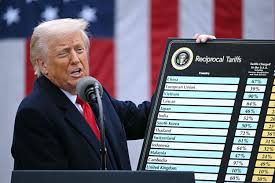The Lagos State Government has unveiled plans to introduce compressed natural gas-powered buses for public transportation operations by the fourth quarter of 2024, pending any unforeseen challenges.
This initiative, announced by the Lagos Metropolitan Area Transport Authority, is part of a broader strategy to adopt biogas as an alternative fuel source for state-regulated buses, aimed at reducing emissions and aligning with the government’s target of achieving net-zero emissions by 2050.
According to a statement from LAMATA’s Head of Corporate Communication, the deployment of CNG-powered buses represents a significant step towards enhancing environmental sustainability in Lagos. The move comes amidst efforts to transition the public transit fleet away from traditional fossil fuels to cleaner alternatives.
The announcement follows the presentation of a comprehensive assessment and feasibility study on alternative fuels for public transportation to government officials on July 18, 2024.
The study, conducted in collaboration with CPCS Transcom Limited and Nexant Consulting and funded by Swede Fund, identified biogas as the preferred alternative fuel for Lagos’ bus system.
The study outlined various potential feedstock sources for biogas production, including sewage from treatment facilities, organic waste from households and markets, slaughterhouse waste, and animal manure.
It also detailed key project stages such as feedstock acquisition, transportation, storage, processing, biogas production, and integration with the state-regulated public bus system.
The Lagos State Government has been actively exploring biofuel options for public transport, supported by ongoing studies and partnerships aimed at evaluating the feasibility and impact of alternative fuels.
This initiative is part of a broader transport policy unveiled by the state government to mitigate environmental impact and enhance climate resilience, particularly given Lagos’ coastal geography.
Under this policy, the government aims to ensure that 52% of buses in the Bus Rapid Transit scheme operate on clean energy and intends to increase the use of biodiesel in freight vehicles. Additional measures and initiatives are outlined in the transport policy to promote sustainable fuel usage and reduce emissions across the state’s transportation sector.
As preparations for the deployment of CNG-powered buses continue, stakeholders are optimistic about the potential benefits of transitioning to cleaner fuels, emphasizing the importance of environmental stewardship and sustainability in urban mobility planning.










